ITTC61: A call to secure a future for forests and people
28 October 2025, Panama City
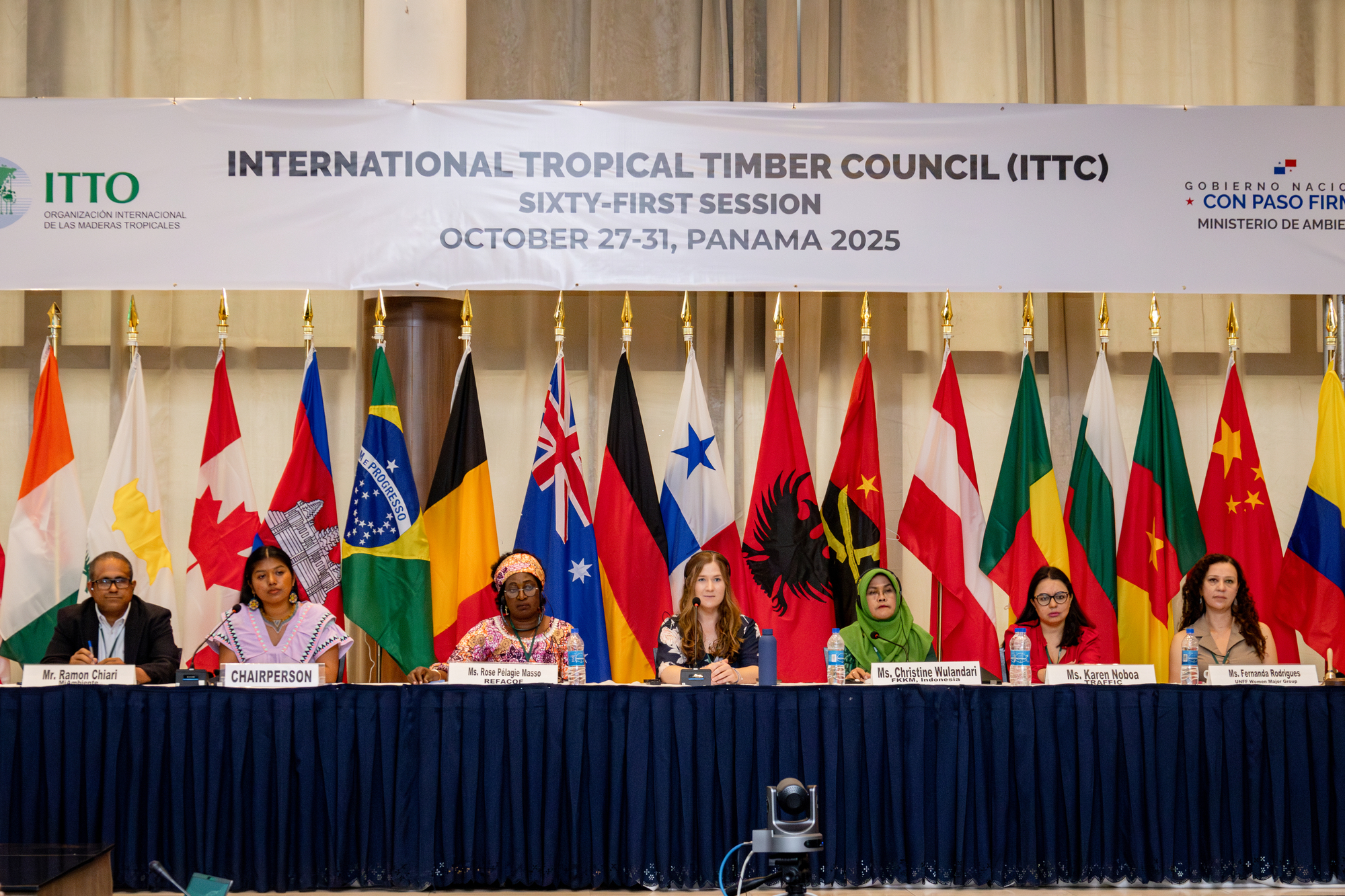
Speakers at the Civil Society Advisory Group (CSAG) panel discussion at ITTC61 on 28 October 2025. From left to right: Ramón Chiari (Panama), Evelyn Jimenez (Panama), Rose Pélagie Masso (REFACOF), Cassandra Price (Australia), Christine Wulandari (FKKM, Indonesia), Karen Noboa (TRAFFIC International), and Fernanda Rodrigues (UNFF Women Major Group, Brazil). © ITTO
Diverse voices and perspectives filled the second day of the 61st session of the International Tropical Timber Council (ITTC61), which runs until 31 October in Panama City, Panama. The Joint Committee sessions brought producer and consumer countries together to review project progress and discuss key agenda items shaping the work of the International Tropical Timber Organization (ITTO).
A highlight of the day was the Civil Society Advisory Group (CSAG) panel discussion, convened as part of ITTC61. The CSAG is an open-ended group that advises the Council on matters related to ITTO’s work that are of particular relevance to civil society. The event brought together experts, practitioners, and government representatives for an engaging dialogue on the future of sustainable tropical forest management and related issues.
Elevating biodiversity, livelihoods and rights
With the theme “Advancing Sustainable Tropical Forest Management: Integrating Biodiversity Conservation and Livelihoods under the ITTA and Global Biodiversity Framework,” this year’s panel underscored the growing global momentum to align forest governance and trade with biodiversity goals and other international development commitments. The session was chaired by Evelyn Jimenez (Panama).
Opening presentations showcased experiences from Africa, Asia, and Latin America, illustrating how communities, governments, and civil society are working to balance ecological protection with socio-economic opportunity.
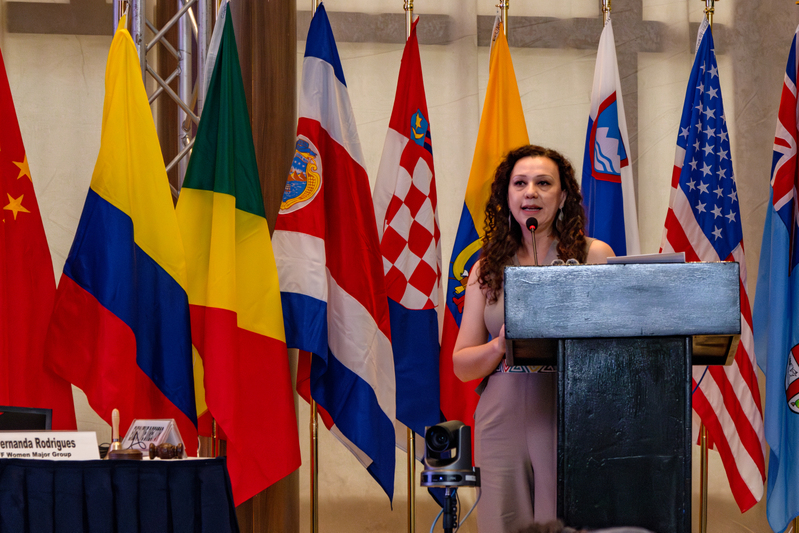
Fernanda Rodrigues, representing the UNFF Women Major Group, emphasized the importance of elevating forests within the global biodiversity agenda. She called for streamlined reporting and more inclusive decision-making—particularly involving women, youth, and Indigenous Peoples. Rodrigues also stressed the need to link science and policy, integrate forests into climate adaptation planning, and enhance communication on forests’ contributions to biodiversity, public health, and community well-being.
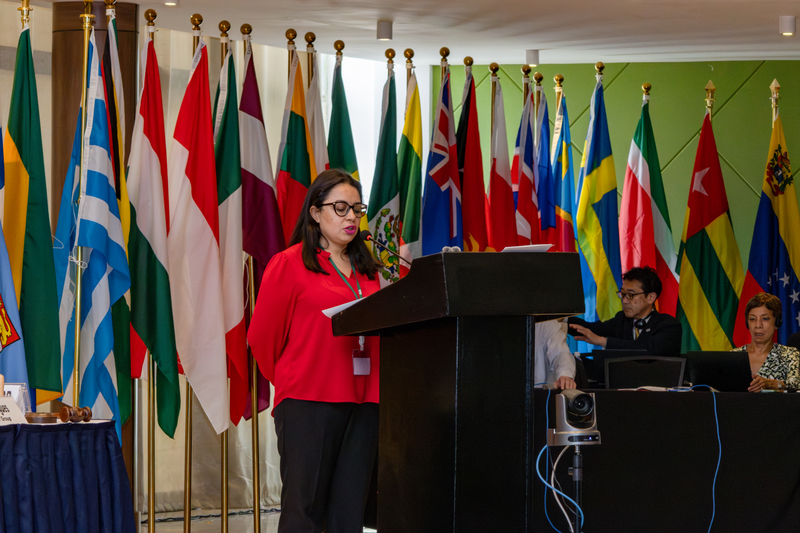
From TRAFFIC, Karen Noboa highlighted that tropical forests harbor over 40% of terrestrial biodiversity and support millions of people. She noted that one in five people depend on wild plants, algae, and fungi for livelihoods, making sustainable trade essential for both conservation and economic resilience. While unsustainable extraction undermines species and community benefits, Noboa emphasized that responsible trade—underpinned by strong governance, certification systems, and digital traceability tools—can drive both conservation and prosperity.
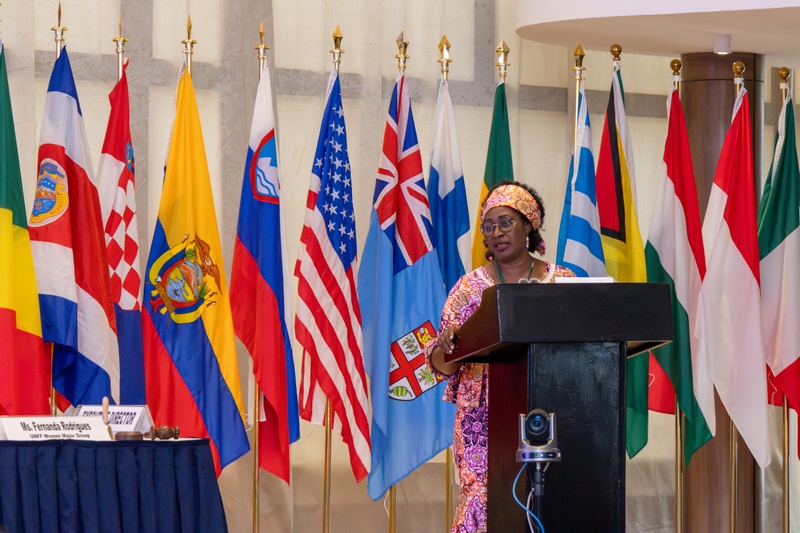
Bringing a strong gender perspective, Rose Pélagie Masso of REFACOF illustrated how women across Africa actively sustain forest landscapes through agriculture, restoration, and traditional knowledge, through ITTO-funded projects. Despite this, many lack access to the resources needed to expand their work. Masso underscored REFACOF’s commitment to planting 20 million trees under the UN Decade on Ecosystem Restoration as a strategic entry point for strengthening partnerships that advance women-led conservation.
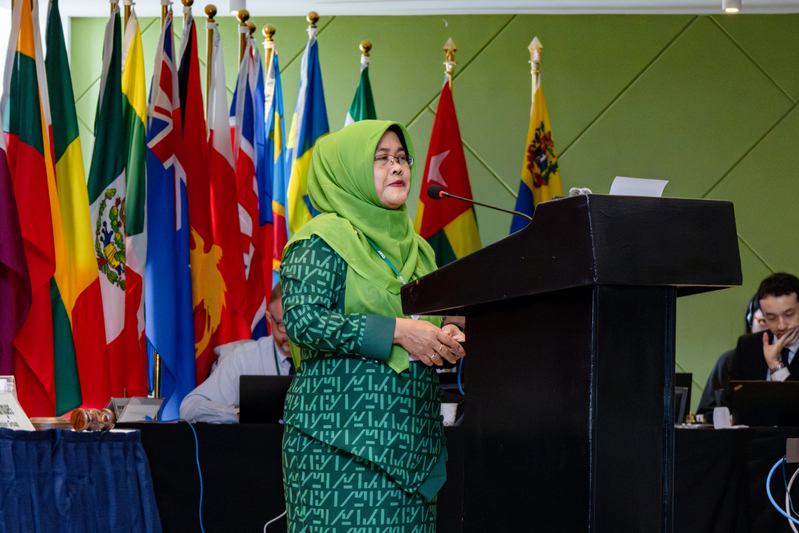
From Indonesia, Christine Wulandari of FKKM highlighted community-based landscape approaches that integrate ecological and social dimensions. Drawing on initiatives in Lampung and Aceh, she described customized management strategies across upland, midland, and downstream areas. Supported by policies such as the Multi-Forestry Business framework (Multiusaha Kehutanan), these models demonstrate how integrated governance can optimize forest benefits.
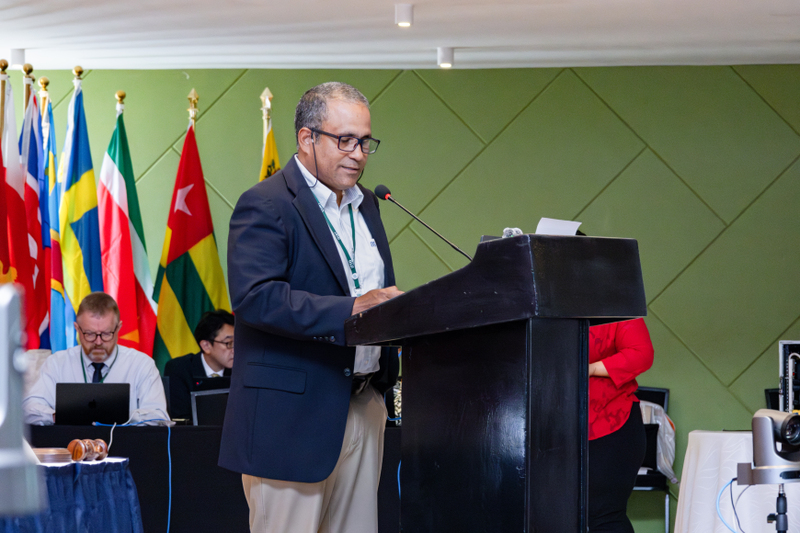
Concluding the panel, Ramón Chiari of Panama’s Ministry of Environment (MiAMBIENTE) showcased a national model that centers Indigenous leadership in sustainable forest management. Nearly 700 000 hectares of Panama’s production forests are located within Indigenous territories, with 170 000 hectares under approved plans. Chiari described how community forestry is improving housing, generating income, strengthening local leadership, and restoring degraded lands. Remaining challenges—such as limited monitoring capacity and traceability—are being addressed through new partnerships, including a GEF-8 project in the Darién region and initiatives to expand FSC certification. These efforts build on an ITTO project that is strengthening MiAMBIENTE’s forest monitoring and traceability systems and helping reduce illegal logging and trade in the eastern part of the country.
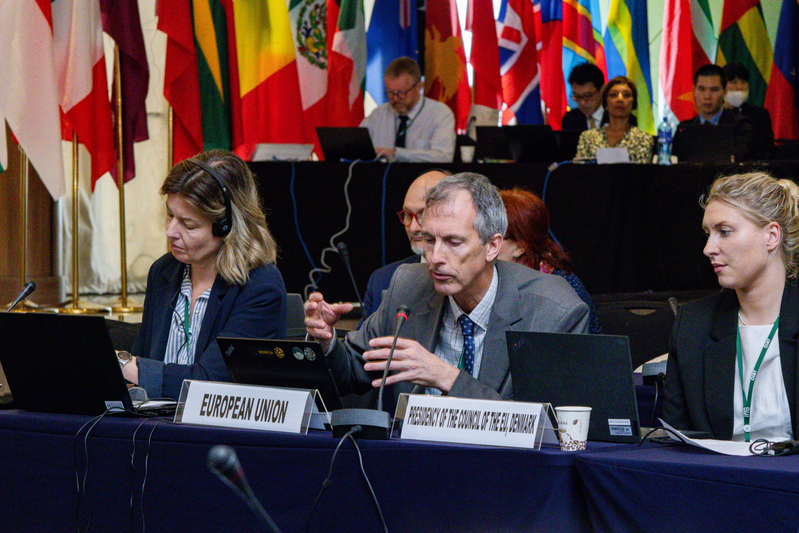
Governments call for stronger international alignment
Following the presentations, government delegates engaged in a lively exchange. The European Union encouraged stronger participation in the ongoing review of the Kunming–Montreal Global Biodiversity Framework (KMGBF), noting that—despite challenges around indicators and reporting—this process is essential to coordinated global action. Canada, New Zealand, and Panama echoed this call, advocating deeper collaboration among international forest-related processes and urging countries to bridge national-level silos separating forest management and biodiversity policy.
Rodrigues noted that efforts are underway within the UN CBD to reinforce coordination, including through revisions to its program of work on forests. The EU further clarified that negotiations on the expanded work program are advancing ahead of CBD COP17.
Responding to delegates, Sheam Satkuru, ITTO Executive Director, reaffirmed ITTO’s strong support for the KMGBF. She reported that ITTO has already provided case studies and traditional knowledge contributions to the CBD and is preparing additional collaborative submissions. She added that ITTO is finalizing a memorandum of understanding with the CBD Secretariat (expected by the end of 2025) to deepen cooperation. ITTO’s active role in the Collaborative Partnership on Forests (CPF), she noted, highlights its long-standing commitment to cross-sectoral solutions.
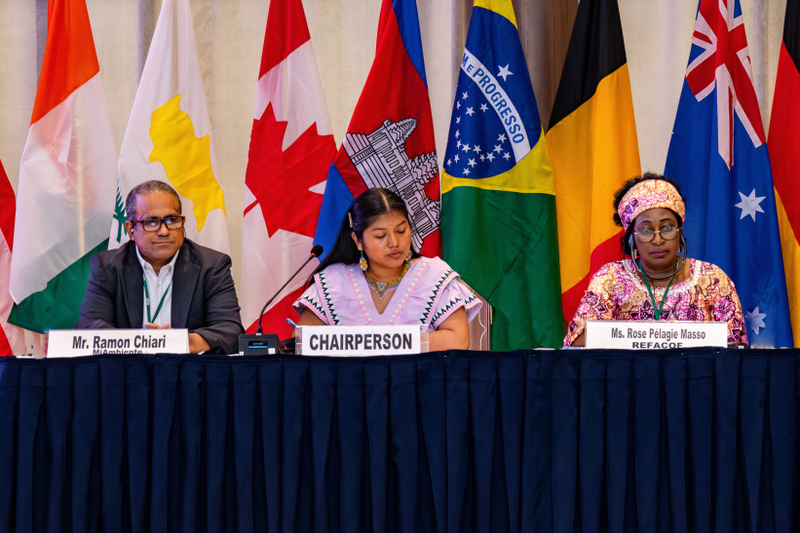
Civil society’s call to action
CSAG closed the session with a statement calling on the Council to seize this critical moment to secure a future in which thriving tropical forests and the well-being of forest-dependent peoples are fundamentally linked. CSAG emphasized that by placing natural forest protection at the core of ITTO’s mandate; strengthening the rights and leadership of Indigenous Peoples and Local Communities (IPLCs), including women and youth; ensuring transparent and accountable supply chains; and reinforcing ITTO’s governance and financing, the successor International Tropical Timber Agreement (ITTA) can become a transformative instrument for climate stability, biodiversity conservation, and inclusive development.
You may read the CSAG statement in English, French or Spanish.
______________________________________________________________________________________
More information on the Council session, including presentations, is available at: https://www.itto.int/ittc-61/presentations
Daily coverage by IISD Reporting Services: https://enb.iisd.org/ittc61-international-tropical-timber-council